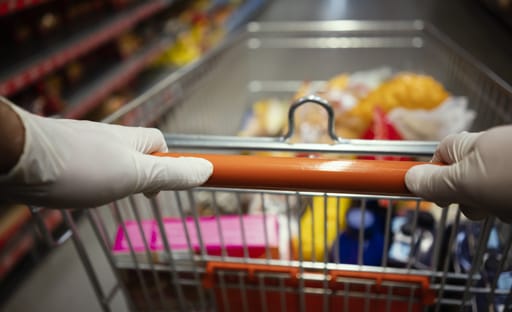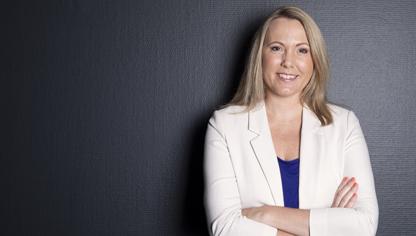Get Focus insights straight to your inbox
In a market like South Africa where the big retailers dominate, Covid-19 is accelerating the demise of the smaller players, shops selling discretionary items and retailers without an online presence.
David Smith, a retail analyst for Investec for Corporates & Intermediaries, says that the post-Covid-19 market will be very tough for smaller players for some time to come, given the impact of shop closures, job losses and changing consumer behaviour.
In this Investec Focus Radio podcast, Smith says that the crisis has significantly sped up the shift towards online retail and that the winners in the future will need to adapt quickly to a more digitally savvy and price-sensitive consumer.
Listen to the podcast
Retail analyst David Smith talks about how Covid-19 is speeding up the consolidation of the SA retail market, changing consumer behaviour and making having an online presence critical.
Subscribe to Investec Focus Radio SA
On who’s getting hit the hardest
“Restaurant sales and anything discretionary is getting absolutely smashed. So, people's propensity and desire for things that you don't actually need right now is way down the list.”
“When you are feeling tough and under pressure and you're working from home, the likelihood of you going out and buying a suit, is close to zero, so businesses that are selling high end discretionary products on a fair amount of scale are going to be in trouble.”
On which retailers will emerge relatively unscathed
“So, it's very clear that food is going to be okay through this period. Everyone still needs to eat. The basic parts of the drug retailers, pharmacy retailers are going to be fine. They still have a market share dynamic, but the discretionary parts of those businesses are concerning.”
On further consolidation in the SA retail market
“We have the single most concentrated or one of the most concentrated retail markets in the world. The big guys are just really big versus everyone else.”
“If you only have big players around, it limits people's ability to create new enterprises and compete effectively because you're competing with somebody who's got more cash and more scale and has ability to leverage online data or online delivery platforms, which is quite difficult for smaller players to do. I suppose the plus side to that is if there's ever a gap and the big players aren't nimble enough, there's always space for the smaller players, but it's going to be very, very tough for the small guys for some time.”
On job losses in the retail sector
“If people withhold spending in key areas which hire lots of people, so think about tourism and hotels, think about retailers and apparel retailers, think about restaurants, at some point those players genuinely have no choice but to let people go themselves, which unfortunately is this rippling effect, right, so it's fewer people jobs and they spend less and it hurts.”

Consumers and the Coronavirus – how will Covid-19 change the FMCG sector?
David Smith participated on a webcast alongside Itumeleng Merafe and Anthony Geard from Investec for Corporates & Institutions on how retailers and consumer staples are being impacted by the Covid-19 crisis.
On accelerating the shift from offline to online retail
“Where you would’ve potentially gone out and spent something at a restaurant, you're now spending on a sandwich at home and then buying online goods to entertain yourself. That's going to happen. The retailers are going to have to respond.”
“We have not encountered a market yet where people start to use online that go back to traditional retail. Once you find the convenience your patterns don't change, and you see it with actually almost any type of online transition.”
“We really have got unbelievably concentrated online players now and then the rest are hybrid, but of all the South African traditional retailers, which you'd find in malls, less than two percent of their sales currently is online and most of them didn't expect it to be more than five percent in the next three maybe five years, that's probably wrong.”
“I'm just not sure we're going to see a major shift online at the lower end [of the market] anytime soon. I think it's likely to remain a purview of the middle class consumer on average for a while, and that the lower end it could probably be five years away until it becomes relatively common with somebody in your direct family group to have shopped online within the last month.”
On changing consumer behaviour
“So, my biggest concern by a country mile is, outside of ‘does the corporate survive’ - and I think all the big retailers in South Africa do survive. The bigger question in my mind is what does the SA consumer look like when we get out of this? So, my number one concern right now is that we are going to have a hangover for the next 18 months and that's what keeps me up at night because you're not quite sure how that hangover looks."
“My expectation is when we leave this patch of forced lockdown and maybe self-imposed lock down for some, you will end up by shifting consumer habits quite aggressively and I think the retail world will be the same, it's going to drive to people's needs and wants, is always going to be there. But the way that you service those is going to be different and I think convenience, in particular, is going to be front of mind for many.
On heightened price sensitivity
“There's no doubt it's going to result in much higher pressure going forward and it's true across almost any category where the purchase item is relatively big for a consumer."
“Online consumerism makes people far more savvy and you are unable to charge what you used to historically, because there’s just much more competition for you and that's not going away, that trend is going to continue.”
On where to invest for future success
“So, retail’s always tough, but it gets tougher and if you don't have the right investment - historically it would have been investment in stock and investment in where your stores were was incredibly important - increasingly that investment is ‘have you spent money on the right systems and data insights into your customers?’. Those sorts of decisions probably determine who wins and loses over the next decade, or two.”
About the author

Ingrid Booth
Lead digital content producer
Ingrid Booth is a consumer magazine journalist who made the successful transition to corporate PR and back into digital publishing. As part of Investec's Brand Centre digital content team, her role entails coordinating and producing multi-media content from across the Group for Investec's publishing platform, Focus.








